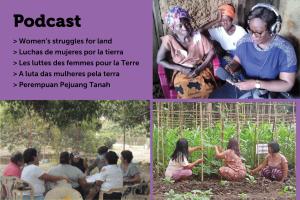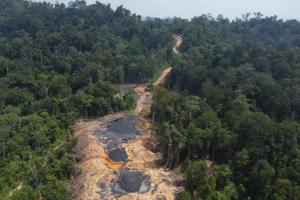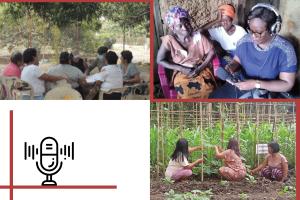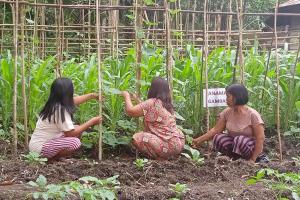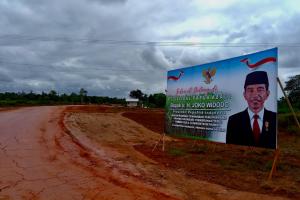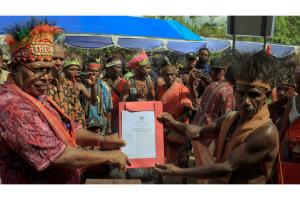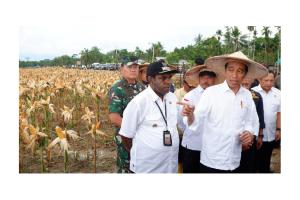Civil Society Response to the Indonesian Government's Reply to the Letter from Nine UN Special Rapporteurs Regarding the Merauke National Strategic Project
Indonesia
Articles
25 June 2025
Bulletin articles
24 June 2025
The following excerpts are from conversations we had with people who, despite living on different continents, have made the same choice: to live without electricity. Whether they live in the Indonesian archipelago or the Brazilian Amazon, their testimonies show that electricity is not an essential resource for human life. On the contrary, for these people, it is essential to do without it.
Multimedia
1 April 2025
Video - Militarised deforestation in Papua: how Indonesia is converting indigenous forest into farms
The Indonesian government’s food estate programme aims to convert 1.6 million hectares of land in Papua into rice fields and sugar cane plantations, annexing indigenous lands in the process. Thousands of troops have been sent from Java to support President Prabowo Subianto’s signature policy. Video made by The Gecko Project.
Articles
19 March 2025
In the framework of International Women's Day, WRM is relaunching the podcast “Women’s struggles for land”, with stories from women’s collectives from the coastal area of Chiapas in Mexico, the Malen Chiefdom in Sierra Leone and the Kapuas river area of Central Kalimantan in Indonesia. While their stories appear quite different from each other at first glance, we find many commonalities and a strong connection between them.
Bulletin articles
15 December 2024
In the province of East Kalimantan, the World Bank is supporting the Indonesian government’s first jurisdictional REDD programme. International conservationist NGOs, TNC and WWF, have been playing a key role in the preparation and execution of the programme. While they proclaim it to be a “success story” (1), this programme is full of contradictions. Available in Indonesian.
Multimedia
25 November 2024
On the International Day for the Elimination of Violence against Women, WRM is sharing the podcast "Women’s Struggles for Land", which we have jointly produced with women's organizations and networks from Mexico, Sierra Leone and Indonesia.
Multimedia
12 November 2024
This is the third episode of the Podcast "Women's struggles for land". This episode has been produced by Solidaritas Perumpuan, from Indonesia, and the World Rainforest Movement (WRM).
Bulletin articles
24 October 2024
This article tells the story of a Podcast that is being jointly launched with Solidaritas Perumpuan, a feminist organisation from Indonesia. This espisode is the third in the series “Women’s struggles for land”, produced by WRM together with organisations from different countries. This one tells the story of women's resistance to oil palm plantations, REDD and a large-scale project for food production (Food Estate) in three villages in Central Kalimantan.
Other information
24 October 2024
The new program “PSN Merauke”, being implemented at a high speed, might become the biggest deforestation project worldwide, is overlapping with customary lands and will directly affect 40,000 indigenous people.
Action alerts
10 October 2024
We call groups, organizations and movements to support this letter in solidarity with the farmers defending their territory against the attempts of Wilmar International company to turn their rice fields into industrial oil palm plantations.
Bulletin articles
22 August 2024
Just like the Dutch colonizers in the past did, the Indonesian government, companies and investors consider the land of Papua to be a vast empty territory, a new frontier for extraction and profiteering However, the land of Papua is not empty, but rather home to hundreds of Indigenous Peoples—including the women and men of Kampung Bariat village, who are struggling to ensure control over their ancestral territory and keep it free of oil palm plantations.
Other information
22 August 2024
Indonesian President Jokowi planted the first sugar cane of one more mega-project in Merauke Regency in the South Papua Province on 23 July 2024. He claims the project will help to address the global food and climate crises. But it seems just one more disastrous large-scale project set up in Indonesia and Papua - such as the failed MIFEE project – that put the livelihoods of forest-dependent peoples at risk.



